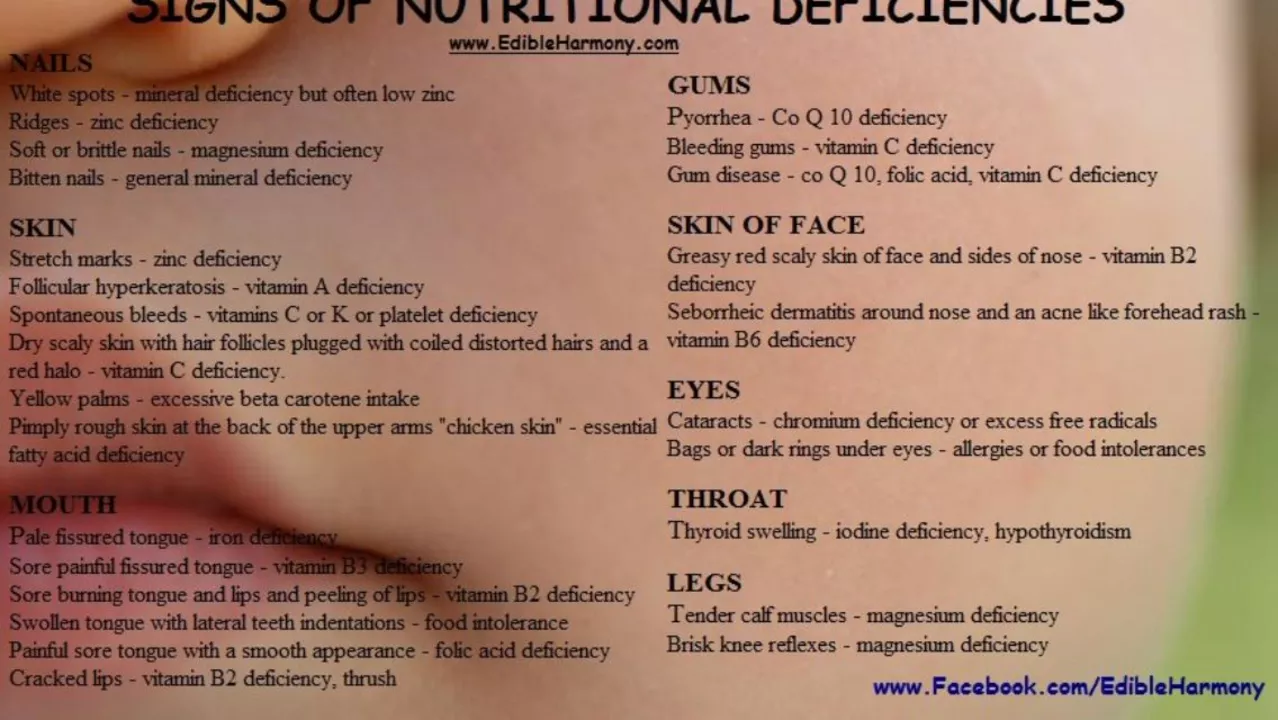Vitamin Deficiency – What It Is and How to Spot It
If you’re feeling constantly tired, getting bruises easily, or noticing hair loss, a missing vitamin might be the culprit. Your body can’t store most vitamins for long, so gaps show up fast. Understanding which nutrient is lacking helps you act before health issues snowball.
Common Signs You Might Be Low on Vitamins
Fatigue and weakness: When B‑vitamins or iron dip, energy tanks. Skin problems: Dry skin, rashes, or cracking corners often point to vitamin A, C, or zinc shortages. Mood swings: Low D or B12 can affect serotonin levels, making you feel down or irritable.
Bone aches and muscle cramps: Vitamin D and calcium work together; missing either leads to soreness. Poor wound healing: A lack of vitamin C slows collagen production, so cuts linger longer.
These clues aren’t definitive on their own, but spotting a pattern tells you something’s off.
Simple Ways to Fill the Gaps
First, get tested. A basic blood panel can pinpoint which vitamins need attention. If testing isn’t an option, start with food:
- Vitamin D: Fatty fish (salmon, mackerel), fortified milk, or a short daily walk in the sun.
- Vitamin B12: Beef, eggs, dairy, and fortified cereals – especially important for vegans.
- Vitamin C: Citrus fruits, bell peppers, strawberries; easy to add to any snack.
- Vitamin A: Sweet potatoes, carrots, spinach – a handful of greens does the trick.
If diet alone isn’t enough, consider a quality supplement. Choose one that lists the exact amount of each vitamin and avoid mega‑doses unless a doctor advises them.
Keep a simple checklist: track meals for a week, note any lingering symptoms, then compare against the list above. Adjusting one meal at a time—like swapping a sugary snack for an orange—can make a noticeable difference within days.
Remember, vitamin deficiency is preventable. By listening to your body, testing when needed, and filling gaps with whole foods or safe supplements, you keep energy high and health on track. Browse our other articles for deeper dives into specific vitamins, supplement safety, and how lifestyle choices affect nutrient absorption.

